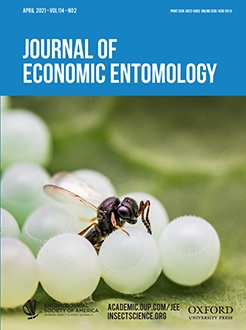Since 2013 Melanaphis sacchari (Zehnter) (Hemiptera: Aphididae), the sugarcane aphid, has been a threat to sorghum production in the United States. The development of resistant sorghum hybrids has been one of the main management strategies. However, plant resistance can be overcome over time and new resistance genes need to be identified and introduced into adapted sorghum hybrids to secure sorghum production. Sorghum plant introduction (PI) genotypes were screened for resistance to M. sacchari through laboratory, greenhouse, and field assays. In addition, the feeding parameters of M. saccahri were analyzed and detailed in seven sorghum genotypes through EPG assays. Results showed sorghum genotypes PI 524770, PI 564163, and PI 643515 expressed resistance to M. sacchari consistently in laboratory, greenhouse, and field tests. EPG analysis suggested sorghum genotypes PI 524770 and PI 564163 express antibiosis to M. sacchari while PI 643515 expresses both antibiosis and antixenosis. Increasing the number of sorghum hybrids resistant to M. sacchari is key to improving integrated pest management of M. sacchari. By utilizing host plant resistance, sorghum producers can decrease insecticide applications while enhancing biological control.
How to translate text using browser tools
6 February 2021
Characterizing Host Plant Resistance to Melanaphis sacchari (Hemiptera: Aphididae) in Selected Sorghum Plant Introductions
M. F. Souza,
J. A. Davis
ACCESS THE FULL ARTICLE
It is not available for individual sale.
This article is only available to subscribers.
It is not available for individual sale.
It is not available for individual sale.

Journal of Economic Entomology
Vol. 114 • No. 2
April 2021
Vol. 114 • No. 2
April 2021
electrical penetration graph
integrated pest management
sugarcane aphid




